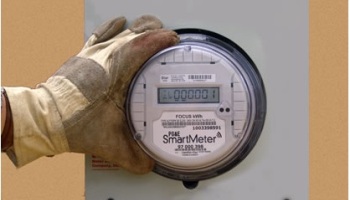Government Stumps Up £4.6bn For Smart Grid

The government has revealed how much is willing to pay for the smart grid and associated data services
The government will commit up to £4.58 billion to build the wide area networks needed to support smart meters in 30 million UK households.
The Department of Energy and Climate Change (DECC) plans to roll out smart meters across the country by 2020 and on Tuesday it published contract notices calling for tenders.
The notices provide further information on elements of the government’s plans and signal that the cash, which utility companies say is essential to turning the government’s dream into reality, will indeed be forthcoming.
The country has been divided into three WAN areas: northern Great Britain and Scotland, central Great Britain and Wales and southern England. Each is worth up to nearly £1.6 billion and bidders may bid for any or all of them.
Nationwide ambition
 In a separate contract notice, tenders have been invited for providing the data services needed to handle the avalanche of data a nationwide network of smart meters would produce.
In a separate contract notice, tenders have been invited for providing the data services needed to handle the avalanche of data a nationwide network of smart meters would produce.
This aspect is worth up to £240 million, and the government plans for the services to be administered by a new “central data and communications company (DCC)” operating under licence.
Despite a record national deficit and swingeing spending cuts across the board, the government thinks smart meters are important in ensuring an affordable, secure and sustainable energy supply.
The notices state: “The UK Government has an objective for every home in Great Britain (GB) to have smart energy meters, empowering people to manage their energy consumption and reduce their carbon emissions. Businesses and public sector users would also have smart or advanced energy metering suited to their needs.”
Smart metering is designed to build intelligence into the country’s utility network. The hope is that by recording energy consumption at intervals throughout the day and feeding this data back to utility companies via a smart network or grid, supply and demand can be managed and consumption ultimately reduced.
The 2020 target for 100 percent smart meter coverage in the UK was set under the previous Labour government, and the coalition brought the start of the rollout forward to 2013 during its first summer in charge.